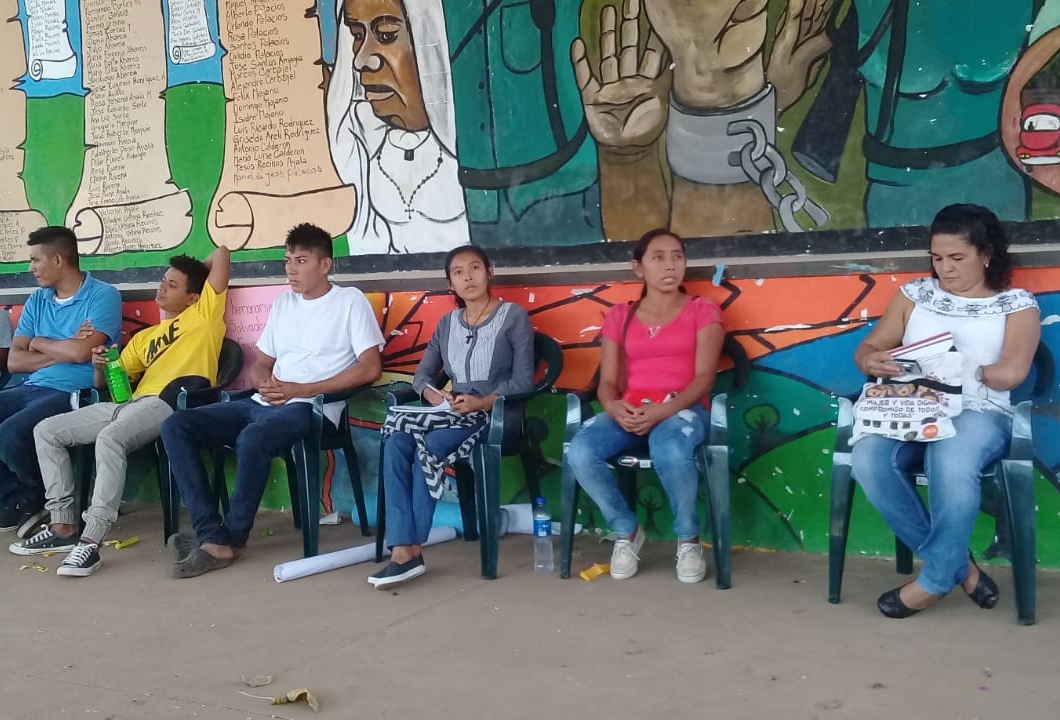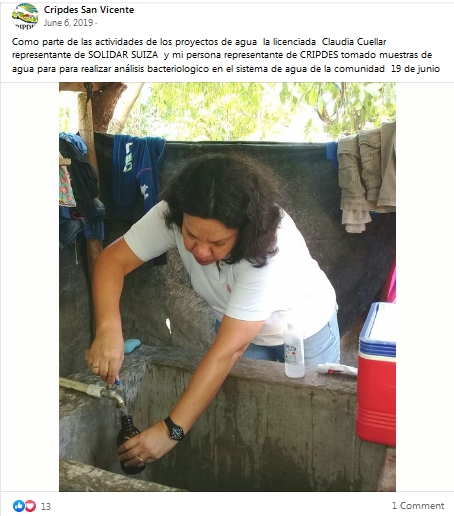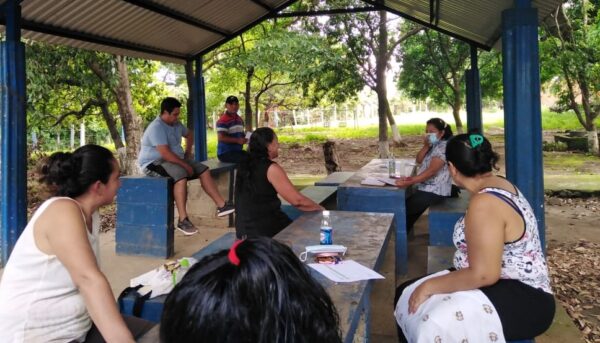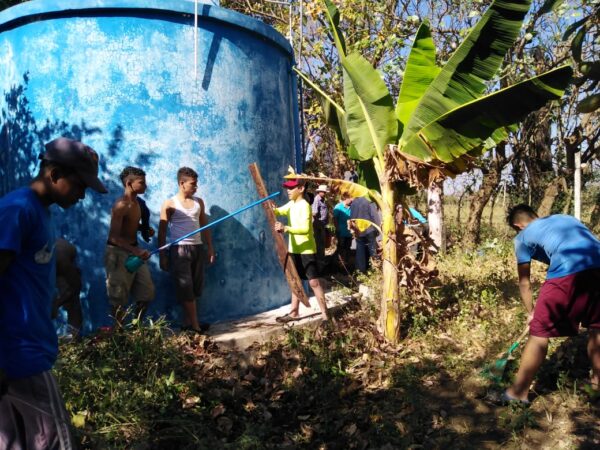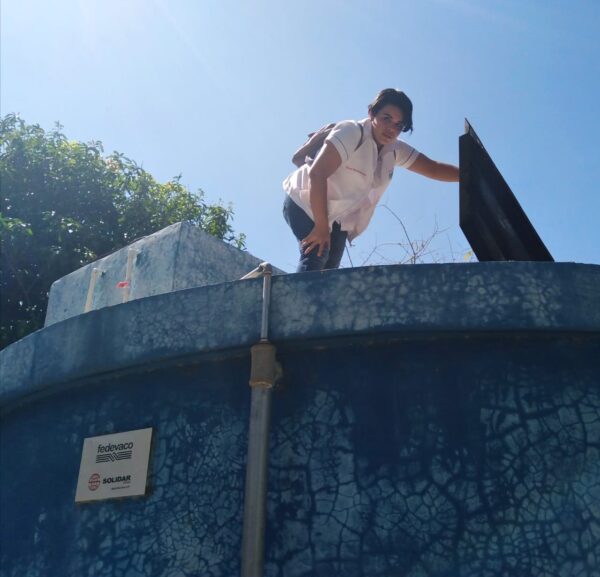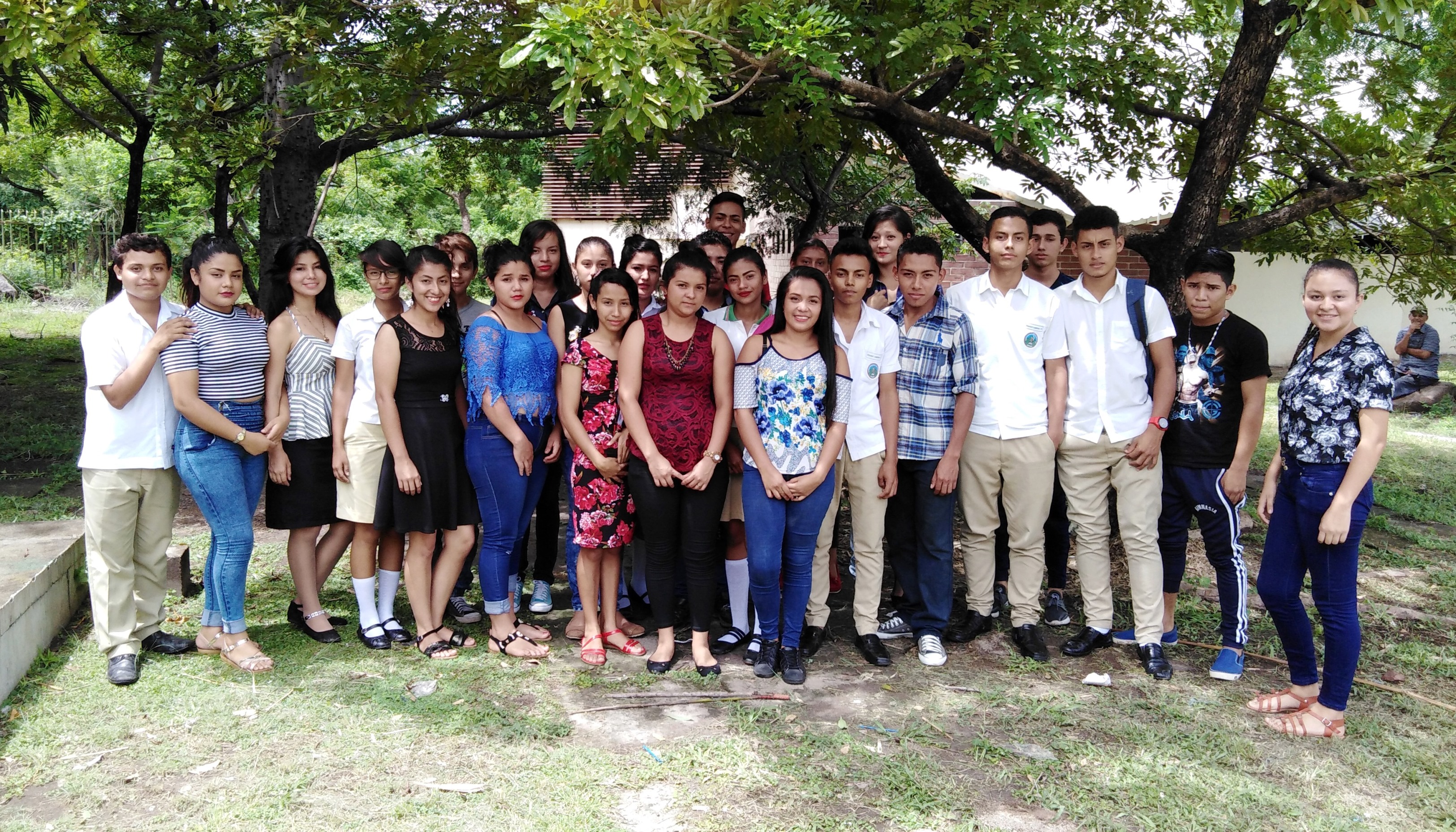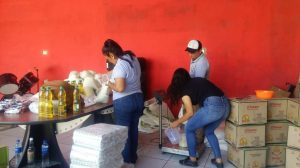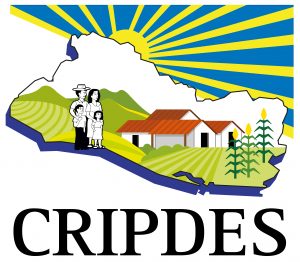CRIPDES Regional Support, Rights for Youth and Women
San Vicente: Women and water / Mujeres y agua
(EN ESPAÑOL ABAJO)
Since the end of this challenging 2020 is approaching, the coordinator of CRIPDES San Vicente, Esmeralda Villalta reflects on the challenges that the regional office has faced to promote the organization of women in the area and keep track of water projects, which It used to be the responsibility of Teresa Marinero who, at since the project ended, could no longer continue as part of the team. Here is a summary of her comments, which you can listen to in full below.
As of May 2018, we could no longer accompany the work of women since the financing ran out, but we had been accompanying women in their organizing efforts, in the formation of committees, leadership (and) public speaking training that we developed in each group of women.
We started by supporting some kitchen gardens so that women (could produce) their own food.
We also had good coordination with CIUDAD MUJER to train women technically, so that they could perform some work in their communities.
The last thing we could do in regard of women’s work were productive initiatives, raising pigs. We also installed two livestock drugstores so women could visit and carry on with their own productive initiatives. We had been working with 30 communities in an hollistic way, but it became difficult due to violence. Nevertheless, we managed to coordinate activities with the organizations that work in the municipality.
For this reason, we are looking for resources to see how we resume working with women at the community level again.
(In the future) we do not expect to work with the 30 communities, but at least with 15. We must look for resources to accompany this work, which is very important, since it enables us to get involved in decision-making processes at the political level in the municipalities.
Financing for drinking water systems also ended in June 2020. The pandemic delayed the execution of the San José Llano Grande project. We no longer have an assigned person who, in addition to following up on water systems improvement projects, provides follow-up to 10 communities in the central sector. Specifically, with the water committees where capacities have been built at administrative level. The promoter (Teresa) had developed knowledge and we are seeking alliances with other actors to see how they support us, so that this work is not left behind.
We are closing 2020 with that limitation that hinders both the organizational work and the accompaniment of water systems. Due to climate change, several springs are drying up and, therefore, many communities are drilling wells in order to guarantee water for human consumption in the communities that CRIPDES San Vicente accompanies.
If you’re interested in supporting this work or you know people who might be interested in developing partnerships with CRIPDES, don’t hesitate to contact us.
Dado que ya se acerca el final de este desafiante 2020, la coordinadora de CRIPDES San Vicente, Esmeralda Villalta reflexiona sobre los desafíos que ha enfrentado la regional para promover la organización de mujeres en la zona y mantener el seguimiento a los proyectos de agua, que solía ser responsabilidad de Teresa Marinero quien, al finalizar el proyecto, ya no pudo continuar como parte del equipo. A continuación un resumen de sus comentarios, que puede escuchar íntegramente arriba.
A partir de mayo de 2018 ya no pudimos acompañar el trabajo de mujeres ya que el financiamiento se nos terminó, pero nosotros veníamos acompañando a las mujeres en la parte organizativa, en la conformación de los comités, capacitaciones sobre liderazgo (y) oratoria que desarrollábamos en cada grupo de mujeres.
Iniciamos acompañando algunos huertos caseros para que las mujeres (tuvieran) su propia alimentación dentro de sus comunidades.
También hicimos buena coordinación con CIUDAD MUJER para formar mujeres técnicamente, para que pudiesen desempeñar algún trabajo dentro de las comunidades.
Lo último que logramos trabajar con mujeres fueron iniciativas productivas, como crianza de cerdos. También instalamos dos botiquines pecuarios para que las mujeres crearan sus propias iniciativas productivas. Veníamos trabajando con 30 comunidades de manera integral, pero se hizo difícil por la situación de violencia vivida; pero logramos articular el trabajo con las organizaciones que trabajan en el municipio.
Por eso, estamos buscando recursos para ver cómo nuevamente iniciamos el trabajo de mujeres a nivel de las comunidades.
(En el futuro) no esperamos trabajar con las 30 comunidades, pero por lo menos con unas 15, para retomar el trabajo organizativo. Debemos buscar los recursos necesarios para acompañar este trabajo que es de mucha importancia para que nos involucremos en la toma de decisiones a nivel político en los municipios.
En junio 2020 también finalizó el financiamiento para los sistemas de agua potable. La pandemia vino a atrasar la ejecución del proyecto de San José Llano Grande. Ya no tenemos una persona asignada que, además de darle seguimiento a los proyectos de mejoramiento de sistemas de agua, le (dé) seguimiento a 10 comunidades del sector centro. Específicamente, con los comités de agua donde se ha venido generando capacidades en la parte administrativa. La promotora (Teresa) había desarrollado conocimientos y estamos buscando alianzas con otros actores para ver cómo nos apoyan, para que este trabajo no quede a medias.
Estamos cerrando el 2020 con esa limitación que dificulta el trabajo organizativo, pero también el acompañamiento a los sistemas de agua. Por el cambio climático, varios ojos de agua se están secando y, por eso, muchas comunidades están perforando pozos para poder garantizar agua para el consumo humano en las comunidades que CRIPDES San Vicente acompaña.
